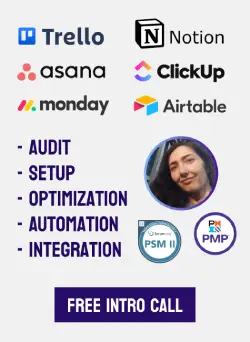Interviewing Alexander Hardt, a Professional Scrum Trainer
Alexander Hardt is a business agility coach with over 20 years of experience with Scrum.
As a Professional Scrum Trainer, Alexander gives classes on almost all certifications currently available at Scrum.org.
We’ll talk about:
- The journey to where he is today
- What role luck played in Alexander’s success – and how do we define “success”?
- Advice to the past self and the aspirations for the future.
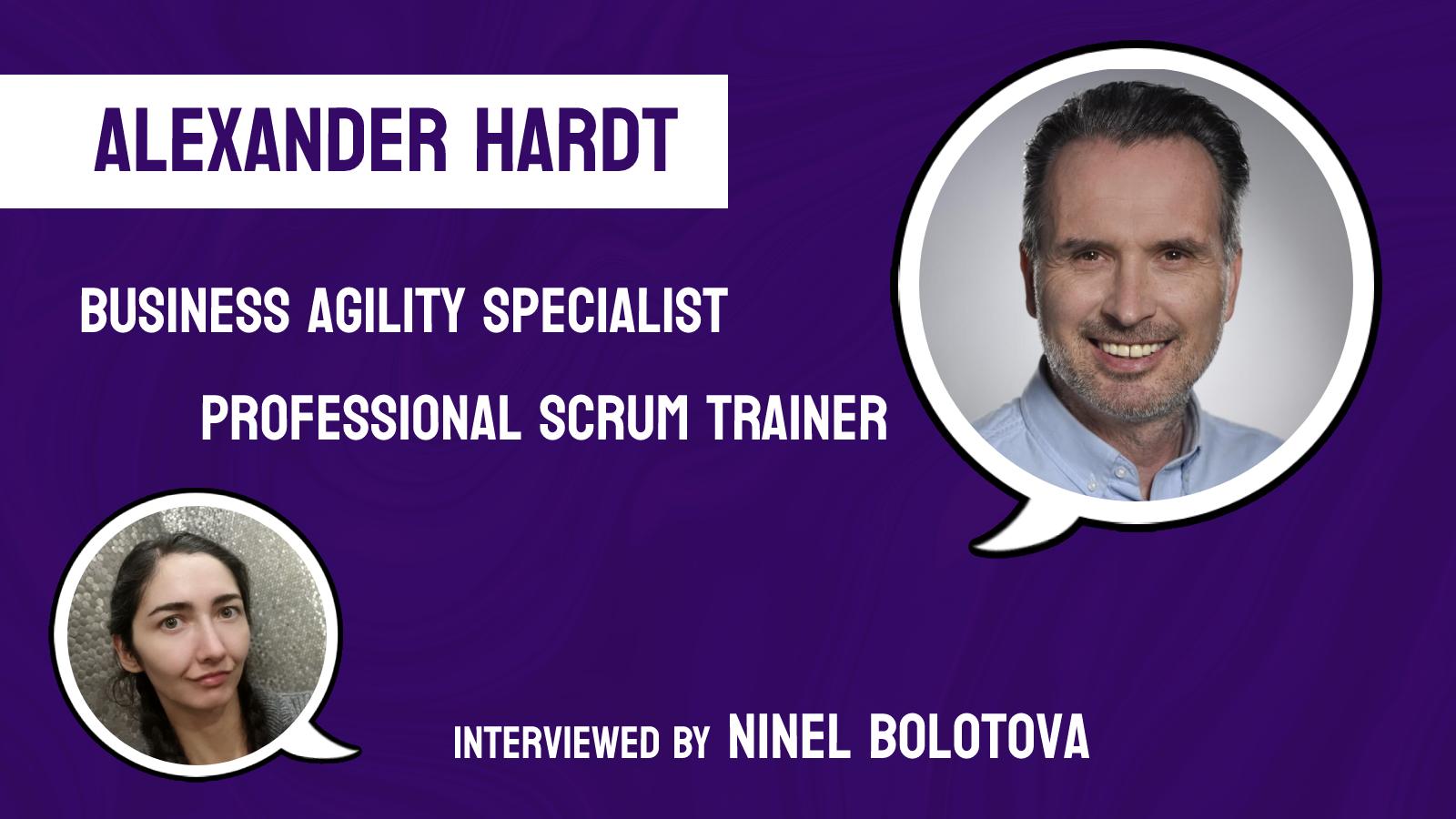
From software developer to an Agile Coach
Ninel: I read that you wanted to become a detective in your childhood. How did you become a software developer, and, eventually, an Scrum Trainer?
Alexander: I studied at the Department of Mathematics and Computer Sciences but didn’t graduate: in 1995, the internet fascinated me and I started working as a web developer.
I came to Agile and Scrum in the early 2000s. I wanted to improve the process as a whole – not only in the small programming niche I worked in. We started with eXtreme Programming and Agile practices.
In the following years, Scrum was getting more popular. In 2008, I took my first Scrum Master training by Scrum Alliance. That was my first step towards Scrum mastery, and I became a Scrum Trainer a few years later.
Advice to myself from the past
The most important advice to my past self would be to start working independently earlier.
I waited for too long to start working for myself and missed several opportunities in my life that I could’ve taken earlier. Embracing uncertainty was difficult for me.
On the other hand, it helped me get more professional before I launched my independent career.
Seeing and seizing professional opportunities
I see opportunities as waves. For example, the Internet itself was a wave. With this wave, I found a profession.
With the rise of Scrum and Agile, I found something I’m passionate about.
I didn’t do any special research to find those waves. I just saw them and realized that, yes, that’s a big thing, and I want to be a part of that. Keep your eyes open for opportunities.
What will the next wave be? We’ll see what happens. But when the next wave is coming, I want to be prepared to ride this wave better and in a more efficient way. AI is on the rise now, it’s probably the next game changer.
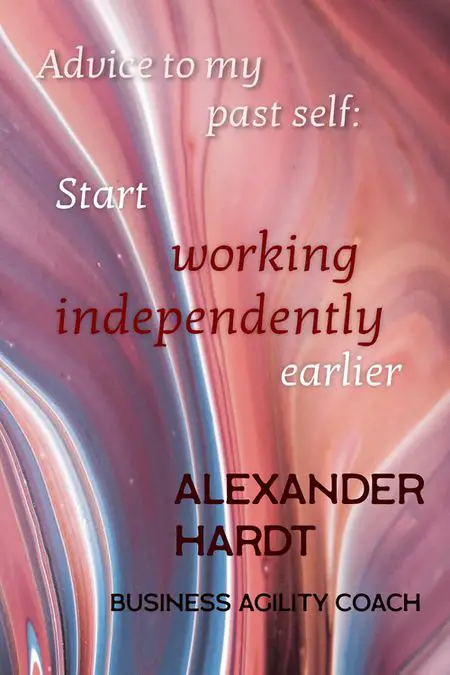
What is your definition of “success”?
I think “success” is an endless journey. Whenever I reach my goal, I’m already thinking about the next goal. It’s a continuous process of moving forward.
And then, looking backward, there are some things I could say I’m proud of.
But sometimes it also happens in the moment. For example, you were coding something for a while, and then it works – you immediately feel that it’s a success.
For me, success is not about being popular. It’s about having things that I did well and could be proud of. It also feels great when another person reaches their goal with my help.
Did luck play a role in where you are today?
When we think of luck, what comes to mind is something sudden, something we didn’t do anything for – but something great just happens… This kind of luck is rare.
I think it’s more about the opportunities. When you see an opportunity, it all depends on how you act. But first of all, you need to learn to see opportunities.
Let me give an example.
I played a game for a few years. A simple game: you need to find money on the street. As you go about your day, you look for coins.
In my first year, I found around 30 cents, the next year it was more than 1 Euro in total. There were over 3 Euros in a year after that, and I even found a banknote of 30 Euros. I found it just because I thought of it.
You could say that finding this money by random chance was luck. But I saw it because I focused on the opportunity.
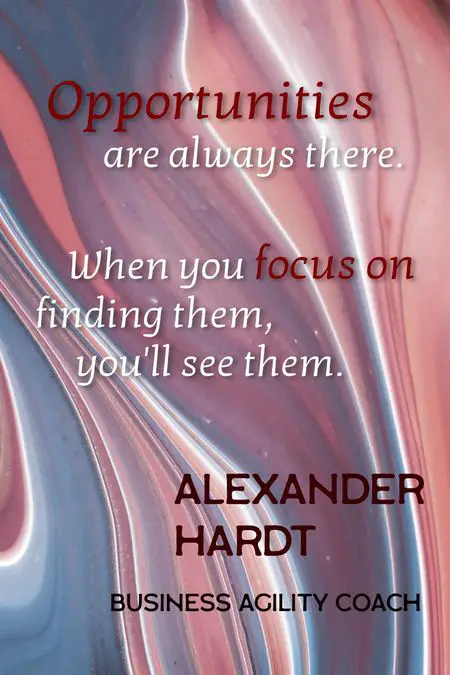
Are there any books you would recommend reading?
I recommend books by Hermann Hesse, a German poet and novelist. I read a few of his novels many years ago, but they left a lasting impression. I’d call them “mind-changing”.
In those books, the characters are often strangers, outsiders – but from their perspective, they’re doing the right thing.
If you’re asking about my main takeaway from those books, it’s “live your life, have your own identity”.
What are your aspirations for the near future?
I want to grow my training business to the point where I don’t need to take part in everyday operations and be more of a shareholder.
How could you scale training? If there’s a signature method you created, you could have coaches on your team who use the method. This way, it’s easier to find your dream clients.
Typically, from my experience, when you’re hired as a coach, you could help individuals to get better at what they’re doing, but you can’t change the company culture. I did facilitate change in some situations. But in general, the bigger the company, the more difficult it gets.
Even as an individual, it’s difficult to change your behavior. You can imagine what it’s like on the organizational level.
I’m going to niche down and specialize in working with smaller and medium-sized organizations.
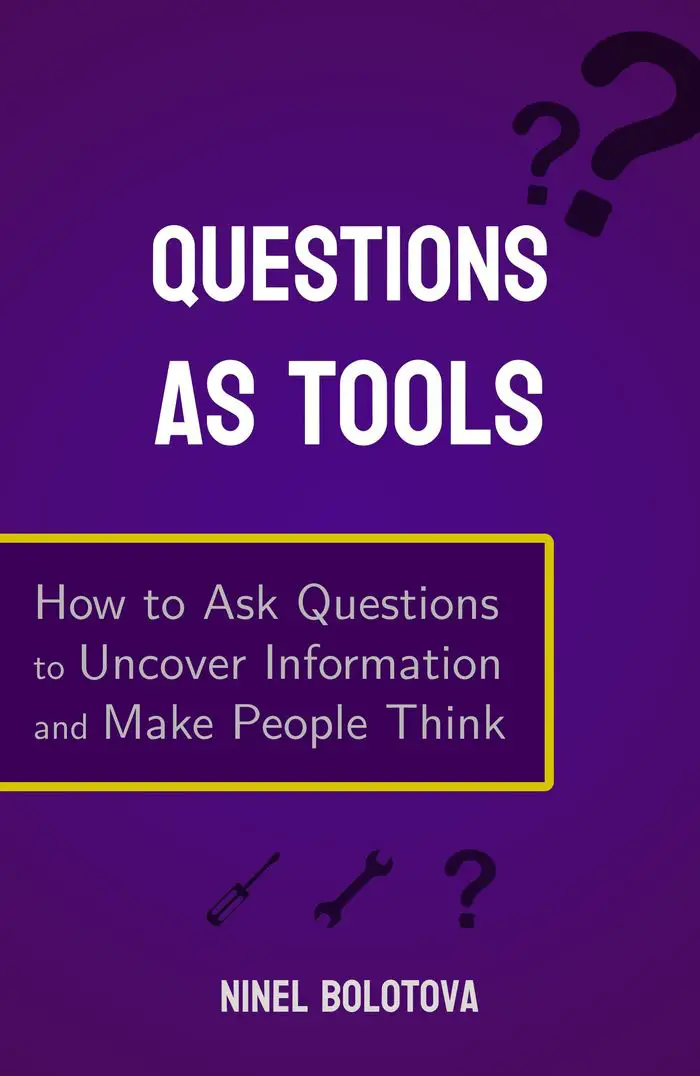
Articles you might be interested in:
